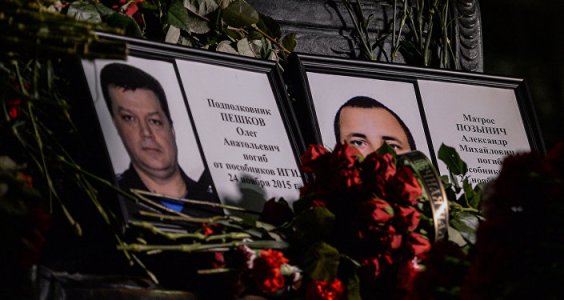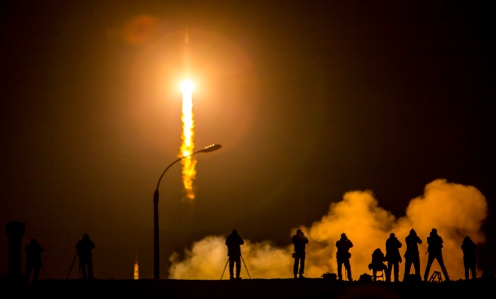
The following article was written on 27th November, therefore some of the details might have changed.
Wherever possible, I have made adjustments.
Just a few days after Turkish F-16s shot down the Russian Su-24 aircraft on 24th November, tens of scenarios and analysis have been published and broadcasted and they all have a common factor:
They accept that the players after the incident are much more than two and that a new chapter in foreign policies has opened.
The time perspective of the event itself will reveal the whole spectrum of participants, those concerned and the stakeholders, the number of who appears to be growing.
In the foreground, there are Russia, its president Vladimir Putin and their recent involvement in the war against ISIS in Syria on one hand, and the NATO member Turkey of Recep Tayyip Erdogan, on the other.
Inevitably, the European Union and its two most powerful countries, Germany and France, become parts of this equation to a more or less obvious extent. They are both NATO members and that’s a role they have to support.
France’s wound of 13th November is fresh as much as are its president’s Francois Hollande declared intentions (and actions) to intensify war against terrorism of ISIS by cooperating with allies and not-so-allies, as is Russia.
To this end, all predictions and signs favored a joint effort with Russia and Mr Hollande’s meet with US president Barack Obama included smoothing of edges and bridging the gap between US and Russia in the name of the common cause.
An aspect of these policies is that Russia’s decision to operate against ISIS in Syria has been vindicated and it can be seen as a win of Vladimir Putin, whose country is blacklisted by NATO, USA and EU, i.e. from the West.
Even if NATO members defended the “right of Turkey to protect its land”, they didn’t provide any further support through public statements.
Therefore Erdogan, who at first seemed to have deterred the approach between West and Russia and the reinforcement of powers against ISIS willingly or not, failed to promote his country as a decisive regional factor.
Irrespective of Turkish president’s instability, as German Vice-Chancellor Sigmar Gabriel said on 25th November, and “exuberance”, by the defensive-aggressive movement of shooting a NATO non-friendly country’s war craft, Turkey repeated its practice of establishing de facto conditions (Cyprus occupation is one of them) and attempted to demonstrate and “tout” its role and status of NATO member.
Also, the overt and straight support to Turkmens could be interpreted as a “declaration” implying the “Kurdish factor”, i.e. Turkish friendly Vs Turkish hostile populations.
Only a short time before, Erdogan had highlighted Turkey’s ambitions to become member of EU and used the refugee crisis and the “need” of EU to ensure Turkish cooperation, in order to extract a promising result.
The obvious benefits though have been a few and so far limited to a financing from EU.
[During the conference of 29Nov., EU promised 3 billion euros which could, and they possibly will, increase and visa regime “rearrangements” and everyone turned a blind eye to the flagrant human rights violations. But then again, that’s the EU …]
So, Turkey decided to use the “NATO card”.
We have to remember that both Angela Merkel and Jean-Claude Junker “suggested” common Greek and Turkish rescue operations in Greek territorial waters.
When Greece rejected such type of Turkish involvement, Ms Merkel underlined that “both countries are NATO members”, as if it should be understood that the membership would allow common territorial grounds or that insured territorial security -for Greece.
It also goes without saying that inside his country Erdogan emphasizes in every possible way the factors of security and stability and projects the image of a strong, powerful, competent and determined leader.
This image covers and entertains impressions and reactions against his controversial “relationship” with civil rights and has even supported his party AKP in recent parliamentary elections.
Turkish Prime Minister Ahmet Davutoglu has a more moderate approach and made efforts to express more peaceful intentions after the downing of the Russian jet.
Turkish and Russian presidents have several similarities as leading personalities and some observers would find similarities even in governing.
It’s their differences, though, which make the “difference” together with the roles of their countries with regard to international relations.
Within the recent picture, Syria remains the hot spot and the threat of ISIS is the global factor.
President Hollande had to suffer a second hit of French capital and citizens, in order to consider a plan of joint action, not restricted inside NATO frame and interests, but comprising several regional powers.
In this frame, while Vladimir Putin has taken a positive initiative (if war can ever be considered positive), Recep Tayyip Erdogan appears as the negative factor.
[The disclosures (within the country and after Putin had spoken about it publicly) of Turkish role and involvement in oil smuggling, triggered Erdogan’s beloved practice of overt censorship.]
The downing of jet incident brought to the forefront the many and “artfully” non-promoted by western media, dark spots of Turkish involvement and role in Syria crisis.
The day-after has brought Russian resolutions about sanctions to Turkey -and Russians know a lot about sanctions as imposed on them by USA allies.
Although some analysts have spoken about a WWIII, on one hand this seems to be happening now with all these open fronts all over the world, and on the other it is highly undesirable even by US, the “usual suspect” of initiating wars and invasions and at least during Obama’s administration.
The nightmare of a generalized regional war could involve:
Lebanon, a tormented country which recently has (silently) suffered major inland hits by terrorism,
Egypt, a country which is revising, rebuilding and expanding its foreign relations,
Jordan, because of proximity and as the hosting country of thousand of refugees,
and probably Iran as a Russian and Syria ally but also against ISIS.
It could also involve Israel, its phobic and pro war policies and, worst case scenario, its nuclear weapons.
The news “run”, tension intensifies or discharges sequentially, anything written could be soon outdated and the so called “diplomatic thriller” between Russia and Turkey continues. with Erdogan’s invitation to Putin to a meeting during World Climate Conference (COP21) in Paris.
[It is imperative to remember, although Davutoglu’s statements and attitude leaved no chance to forget, that Turkish diplomacy is among the (two in my opinion) most insolent of the world.
Another feature of their policies is (again among the two) to create «guilt complexes» to their interlocutors.
The combination of antidemocratic practices, together with the assassination of Tahir Elci, pro-Kurdish activist, made EU-Turkish approach more bitter.]
At this point of time we can conclude that although hopes and fears are significant yet invisible and neglected factors of foreign policies, prudence, sangfroid and sobriety combined with care about people, are better consultants and should prevail for all participants, at last.

There is a lot to think about here. I feel that so much of this dysfunction is a failure, particularly of those in power, to acknowledge we are all vulnerable and the only way through is working together. Instead the denial stokes the fears and anxieties. Reactions follow, as you show, stability is lost.
LikeLiked by 1 person
One certainty is indeed that “the only way through is working together”.
But, as the “spirit” of the holidays fades, pessimism is back!
Wish you a happy 2016!
LikeLike